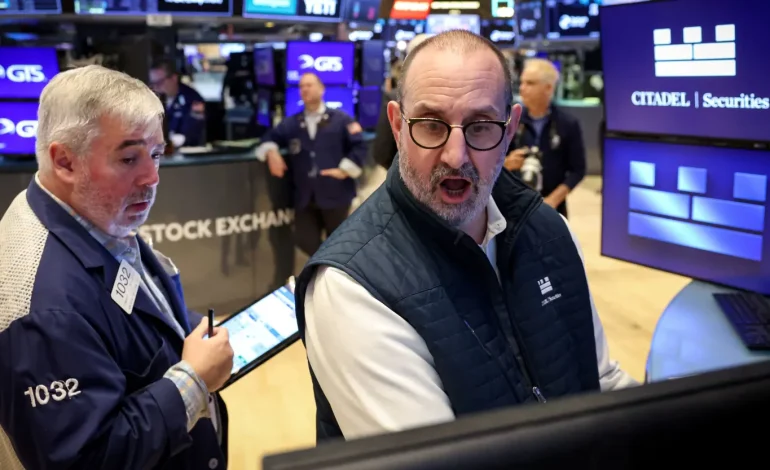US stock futures jumped on Monday following a weekend trade agreement between the United States and China that included a significant, though temporary, reduction in tariffs.
The announcement lifted investor sentiment and ignited a global rally in equities.
Dow Jones Industrial Average futures rose 850 points, or 2.1%, while S&P 500 futures climbed 2.8%. The Nasdaq-100 futures led the advance, surging 3.8%.
The agreement, reached during negotiations in Switzerland, includes a 90-day period in which reciprocal tariffs between the two countries will be reduced by 115 percentage points. The new arrangement lowers US tariffs on Chinese imports to 30%, and Chinese duties on American goods to 10%.
US Treasury Secretary Scott Bessent called the talks “very productive” and said further meetings are expected in the coming weeks.
“I would imagine in the next few weeks we will be meeting again to get rolling on a more fulsome agreement,” he told CNBC.
The agreement represents a major shift from last month’s sharp escalation, when President Donald Trump imposed 145% tariffs on Chinese goods, prompting Beijing to retaliate with 125% tariffs on US imports. While the new truce has eased tensions, Commerce Secretary Howard Lutnick noted that a 10% baseline tariff on goods from other countries is likely to remain in place.
Global markets welcomed the breakthrough. In Asia, Hong Kong’s Hang Seng Index surged 2.98%, while its technology sector index gained over 5%. Mainland China’s CSI 300 rose 1.16%. Japan’s Nikkei added 0.38%, and South Korea’s Kospi rose 1.17%. Indian equities rallied sharply as well, boosted further by a ceasefire agreement between India and Pakistan over the weekend.
In Europe, shipping companies saw notable gains. Danish giant A.P. Moller-Maersk jumped more than 11.5%, and Germany’s Hapag-Lloyd climbed over 13.5%, reflecting optimism that trans-Pacific trade volumes could rebound. Both firms expressed hope that the tariff truce would pave the way for a more permanent resolution.
Pharmaceutical stocks, however, were a drag on markets after President Trump announced plans to sign an executive order aimed at reducing drug costs by 30% to 80%. Shares of Merck, Johnson & Johnson, Pfizer, and Gilead Sciences all fell between 2% and 5%.
This week, markets will closely watch key US economic indicators, including April’s consumer price index on Tuesday and retail sales and producer price index data on Thursday. These reports are expected to shed light on how recent trade uncertainty has affected inflation and consumer spending.
Despite Monday’s broad rally, some businesses remain cautious. Tat Kei, a Chinese manufacturer, welcomed the cooling of tensions but noted that prices for US customers will still rise due to the remaining tariffs.
“I don’t think this is going to be the end of it… not by a long shot,” he said, suggesting the need to diversify manufacturing to other regions.
White House Press Secretary Karoline Leavitt described the agreement as “an extraordinary first step,” adding that future discussions will include opening China’s markets further and addressing concerns such as fentanyl exports to the US.










The latest news in your social feeds
Subscribe to our social media platforms to stay tuned